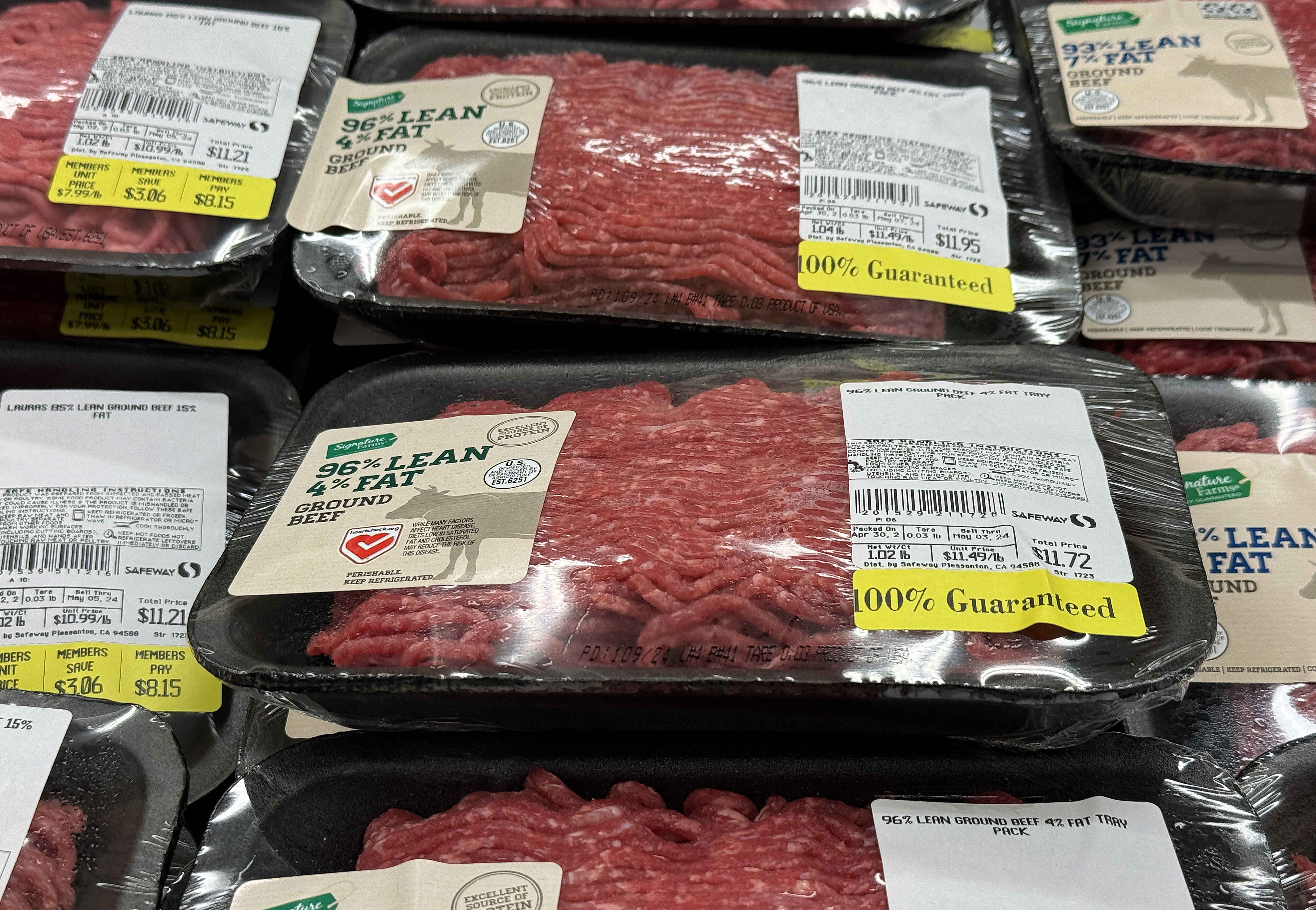
FSIS Issues Public Health Alert for Ground Beef Distributed Nationwide
The FSIS' public health alert centers around the fact that a specific food product may be contaminated with a certain bacterium, which the Cleveland Clinic provided background information on.
On June 3, 2025, the U.S. Department of Agriculture's Food Safety and Inspection Service (FSIS) issued a public health alert for ground beef from Whole Foods Market retail locations in specific states. They have done so to ensure that the public does not consume the meat, as it may be contaminated with E. coli O157:H7.
The FSIS emphasized that this alert was issued out of an abundance of caution, not in conjunction with a formal recall, as the affected ground beef is no longer available on store shelves. However, the agency warned that some batches of the product may still be in consumers' refrigerators or freezers.
The potentially contaminated item — 1-lb. vacuum-packed packages of "Organic Rancher Organic Ground Beef 85% Lean 15% Fat" — was produced on May 22 and 23, 2025, and bears the USDA mark of inspection with establishment number "EST. 4027."
Labeled with "Use or Freeze By 06-19-25" and "Use or Freeze By 06-20-25," the ground beef was first sent to distributor facilities in Connecticut, Georgia, Illinois, and Maryland before being further distributed to Whole Foods Market locations nationwide.
In addition to the aforementioned locations, specific states include Alabama, District of Columbia, Florida, Iowa, Indiana, Kentucky, Massachusetts, Maine, Michigan, Minnesota, Missouri, Mississippi, North Carolina, New Hampshire, New Jersey, New York, Ohio, Pennsylvania, Rhode Island, South Carolina, Tennessee, Virginia, and Wisconsin.

Packages of ground beef displayed in a Safeway store in San Anselmo, California on May 2, 2024. | Source: Getty Images
States not listed above are not impacted by the health alert, and products with different Use or Freeze By dates are not affected either.
The issue came to light after the producing establishment notified the FSIS that a shipment of the ground beef tested positive for E. coli O157:H7, a dangerous strain of bacteria that can cause severe illness among people of any age.
Although there have been no confirmed reports of illness tied to the product at this time, the FSIS urges the public not to take any chances. Consumers in possession of the affected beef are advised to discard it immediately or return it to the store of purchase.
To mitigate risks associated with foodborne bacteria, the FSIS is also reminding consumers of essential food safety practices. Ground beef should always be cooked to a temperature of 160°F, which can only be accurately confirmed using a food thermometer.
Additional guidance, along with a complete safe temperature chart, is available on the FSIS website. For those with questions or concerns, contact information for the product's manufacturer, NPC Processing, Inc., and the USDA Meat and Poultry Hotline has been provided.
Reports of any problems related to meat or poultry can also be filed through the USDA's 24-hour online complaint system.
Though E. coli may sound like an unfamiliar threat to some, it's actually a bacterium that most people already carry in their bodies, specifically within the gastrointestinal (GI) tract, where it usually plays a helpful role in digestion. However, not all strains of E. coli are benign.
According to the Cleveland Clinic, several variants can become harmful when introduced to the body through unsafe means, particularly the Shiga toxin-producing E. coli (STEC), which is known for causing severe illness. Infections caused by E. coli can range from mild to life-threatening.
While some strains lead to gastrointestinal discomfort, such as watery or bloody diarrhea, abdominal cramps, and low-grade fever, others can migrate to parts of the body where the bacteria aren't normally found, resulting in more serious complications.
For example, when E. coli enters the urinary tract, it can trigger symptoms like painful urination, foul-smelling urine, and the feeling that you urgently need to urinate frequently. More severe infections have been linked to the bloodstream, gallbladder, and even rare cases of pneumonia and meningitis.
Symptoms of infection typically appear between three to five days after exposure, though some strains may take effect in just a few hours or as late as ten days.
STEC is particularly dangerous because it releases potent toxins that can damage cells and potentially lead to hemolytic uremic syndrome (HUS), a serious condition that causes blood clots and damages the kidneys. Although anyone can get infected with E. coli, those at greater risk include newborns, young children, people over 65, and people with diabetes, to name a few.
Transmission of E. coli most often occurs via the fecal-oral route, which involves ingesting microscopic traces of contaminated fecal matter. This can happen through consuming undercooked meat, drinking unpasteurized milk or juices, swallowing untreated water, or even touching contaminated surfaces or animals.
Poor hygiene practices, such as improper handwashing after using the bathroom or changing diapers, can also facilitate the spread. When it comes to diagnosis, healthcare providers rely on a variety of tests depending on the symptoms.
These may include stool samples, urine cultures, blood tests, or, in rare neurological cases, cerebrospinal fluid (CSF) analysis. Treatment varies by the type and severity of infection. While most gastrointestinal E. coli cases resolve without medication, antibiotics may be prescribed for urinary tract infections, sepsis, or other more invasive conditions.
Importantly, antibiotics and anti-diarrheal medications are not recommended for STEC infections, as they can worsen symptoms or trigger complications. The best defense against E. coli remains prevention.
Proper hand hygiene — particularly after restroom use, animal contact, and handling raw food — is essential. The Cleveland Clinic also advises safe food practices, such as avoiding unpasteurized products, thoroughly rinsing fresh produce, and ensuring meats are cooked to safe temperatures.
Additionally, consumers are warned not to defrost meat on countertops, not to rinse raw meat before cooking, to separate cutting boards for meat and produce to prevent cross-contamination, and to refrigerate leftovers immediately.
The information in this article is not intended or implied to be a substitute for professional medical advice, diagnosis or treatment. All content, including text, and images contained on ondoho.com, or available through ondoho.com is for general information purposes only. ondoho.com does not take responsibility for any action taken as a result of reading this article. Before undertaking any course of treatment please consult with your healthcare provider.
